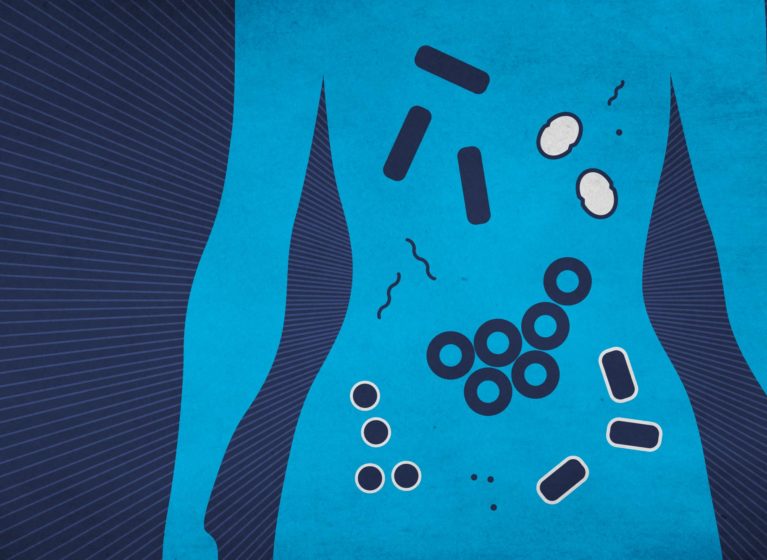Our Sean Moore, MD, and Jason Papin, PhD, have made an interesting discovery about the timing of the body's biological clock that could have important applications, from improving the effectiveness of chemotherapy to battling jet lag.
Dr. Moore and Professor Papin combined lab work with high-tech computer models to shed light on how bacteria that naturally live in our guts regulate the "circadian rhythms" of the cells that line our intestines. These cells are responsible for important activities, such as absorbing nutrients from food, that are vital to good health.
The gut bacteria, the researchers found, produce unique byproducts -- short chain fatty acids -- that reset the internal clock governing when the intestinal cells do their jobs. These particular fatty acids are made exclusively by the gut bacteria and flip certain mammalian genes on and off as needed over 24-hour cycles.
The researchers were able to study this using “three-dimensional gut organoids” – tiny guts in a dish. The researchers began using mouse organoids but then confirmed their findings using human cells.
Professor Papin used advanced computer modeling to give direction to this complex work. Understanding the relationship between gut microbes and our bodies is difficult because the microbes manufacture many different “metabolites,” including all sorts of fatty acids. The computer models helped the researchers determine which metabolites might be the most important for biological timekeeping.
By understanding the function of these metabolites, doctors can work to manipulate them to benefit our health and improve people's quality of life. For example, tweaking the body’s biological clock might benefit night-shift workers or improve chemotherapy outcomes. It also might be used to help patients fend off Salmonella infections that cause food poisoning, as Salmonella’s ability to invade the body is determined, in part, by the circadian clock.
“Timing is everything,” Dr. Moore told me. “Understanding how the microbes within us shape biological rhythms in the gut will ultimately help us choose the right treatment, for the right patient, at the right time."
